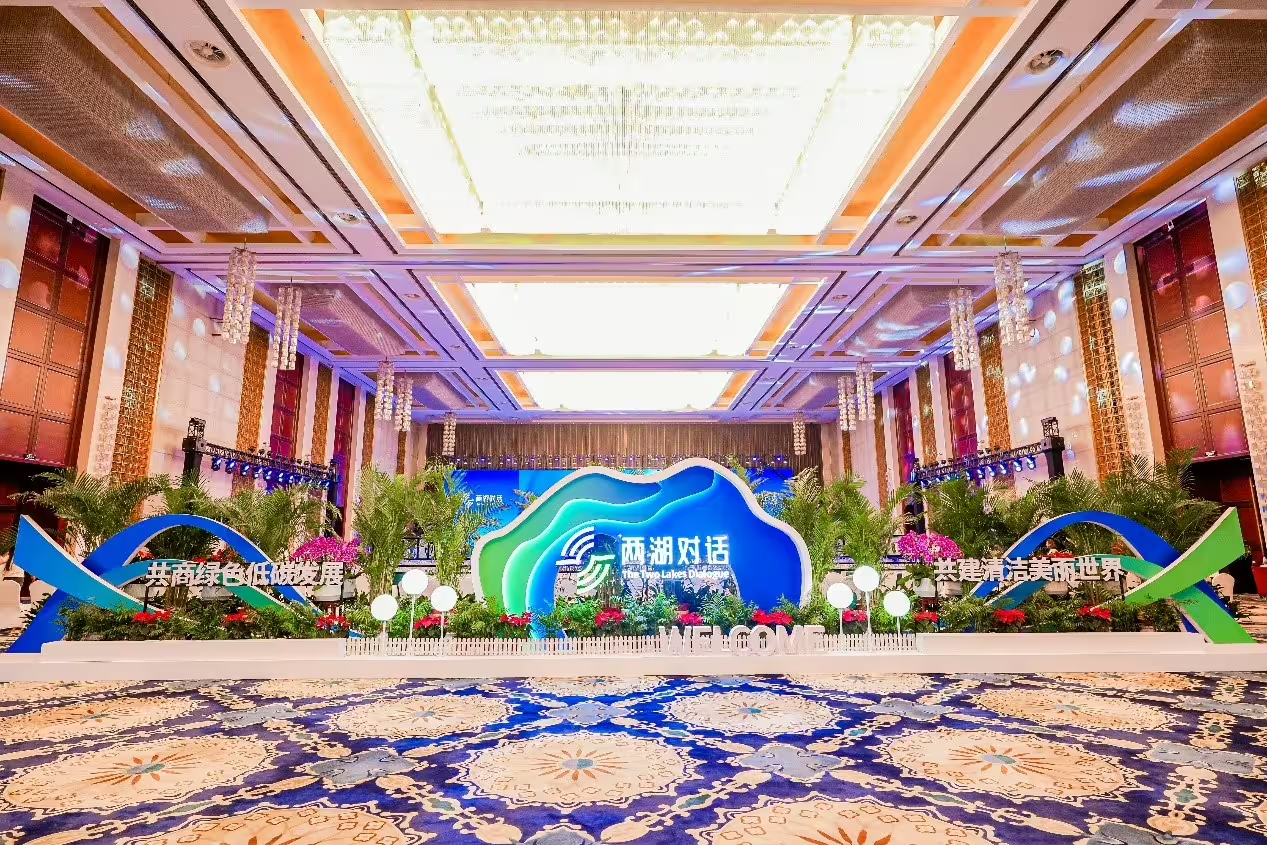Authors
WBCSD
From July 3 to 5, the “Two Lakes Dialogue” International Cooperation Dialogue for Green, Low-Carbon and High-Quality Development 2024, co-hosted by Hubei Hongtai Group, World Business Council for Sustainable Development (WBCSD), and China International Chamber of Commerce Hubei Chamber, was successfully held in Wuhan, Hubei. The dialogue between East Lake and Lake Geneva spanned thousands of miles, focusing on “Dialogue on Green and Low-Carbon Development, Aiming to Build a Cleaner and More Beautiful World.” During the event, over 500 representatives, including executives from multinational corporations, representatives from international organizations, envoys to China, and renowned experts and scholars, engaged in a series of matching dialogues on areas such as new energy vehicles, clean energy, sustainable agriculture, carbon markets, carbon accounting, and industrial decarbonization, to discuss cooperation and development.
On the opening ceremony on July 4, Deputy Secretary of the Provincial Party Committee and Governor Wang Zhonglin, Chairman of the China Council for the Promotion of International Trade (CCPIT) Ren Hongbin, and the President and CEO of WBCSD Peter Bakker attended and delivered speeches. Keynote speeches were made by the Executive Vice Presiden of Panasonic Holdings Corporation, Tetsuro Homma; Executive Vice President of Mercedes-Benz Group China Ltd., Prof. Dr. Hans Georg Engel; and Global CEO of Environmental Resources Management (ERM) Tom Reichert. Wuhan Municipal Government, Yichang Municipal Government, Dongfeng Yoyah Automobile Technology Co., Ltd., and China Carbon Emissions Registration and Clearing Co., Ltd (CRC) made thematic promotions.
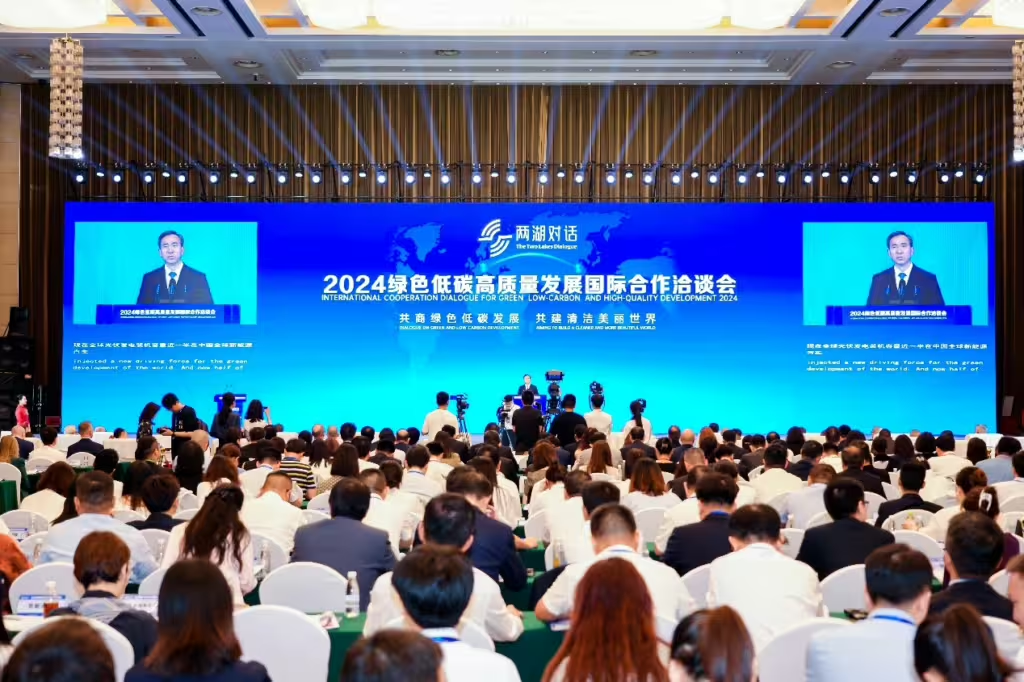
Governor Wang Zhonglin stated that international cooperation in green low-carbon fields is a pragmatic action to accelerate green transformation and promote global sustainable development. He sincerely welcomed enterprises from home and abroad to invest in Hubei, cultivate Hubei, share development opportunities, and create a better future together.
Chairman Ren Hongbin expressed that the “Two Lakes Dialogue” between East Lake and Lake Geneva builds an international exchange and cooperation platform, which is very significant. He hopes everyone will engage in deep exchanges, build consensus, and achieve practical results. CCPIT will fully leverage its advantages to support Hubei in accelerating the construction of a new inland opening-up highland, integrating into the global industrial division and cooperation, continuously deepening high-level opening-up, and achieving high-quality development.
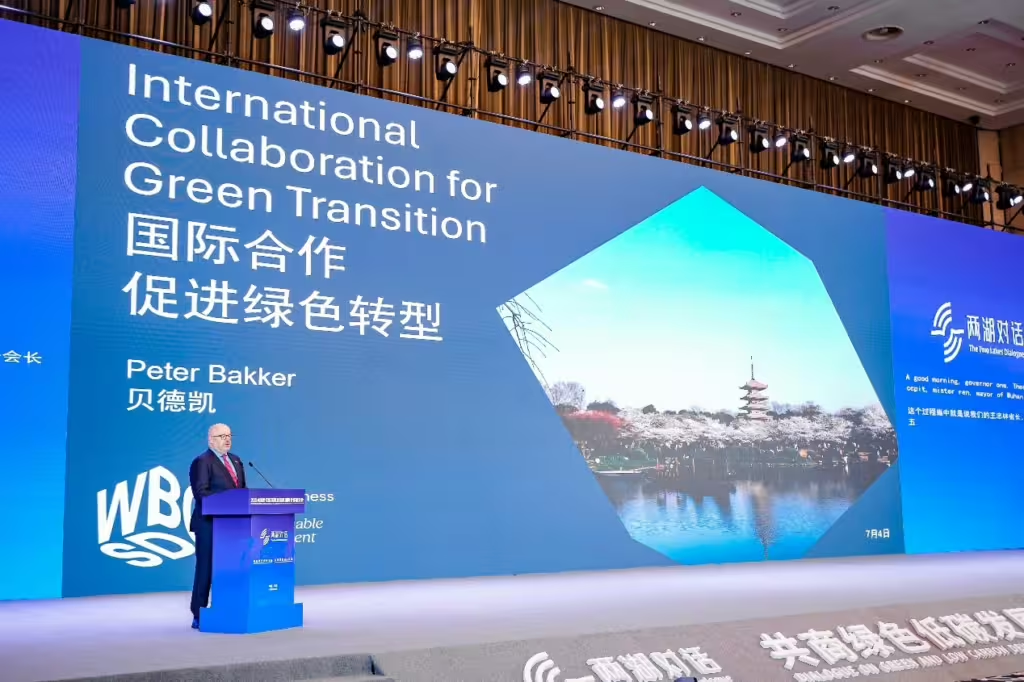
Peter Bakker stated that human activities leading to carbon emissions are a major cause of climate change. At the current carbon emission intensity, humanity will reach the critical point of 1.5 degrees Celsius global warming in just six years. To ensure a good life for humanity, systemic changes are necessary, requiring thorough transformations in the value chain, supply chain, and consumer behavior to make the world more sustainable. China, as one of the world’s largest economies with tremendous innovation capabilities, must participate in global affairs. China’s “dual carbon” goals are ambitious, reflecting the responsibility of a major power. Through cooperation between China and the world, more companies will be encouraged to engage in carbon reduction, promoting the transformation of agriculture, energy, transportation, and industry, and taking collective action to address global issues. Bakker believes that companies must find climate-friendly, nature-respecting, and fair solutions to reduce carbon emissions, making enterprises positive contributors to the natural environment.
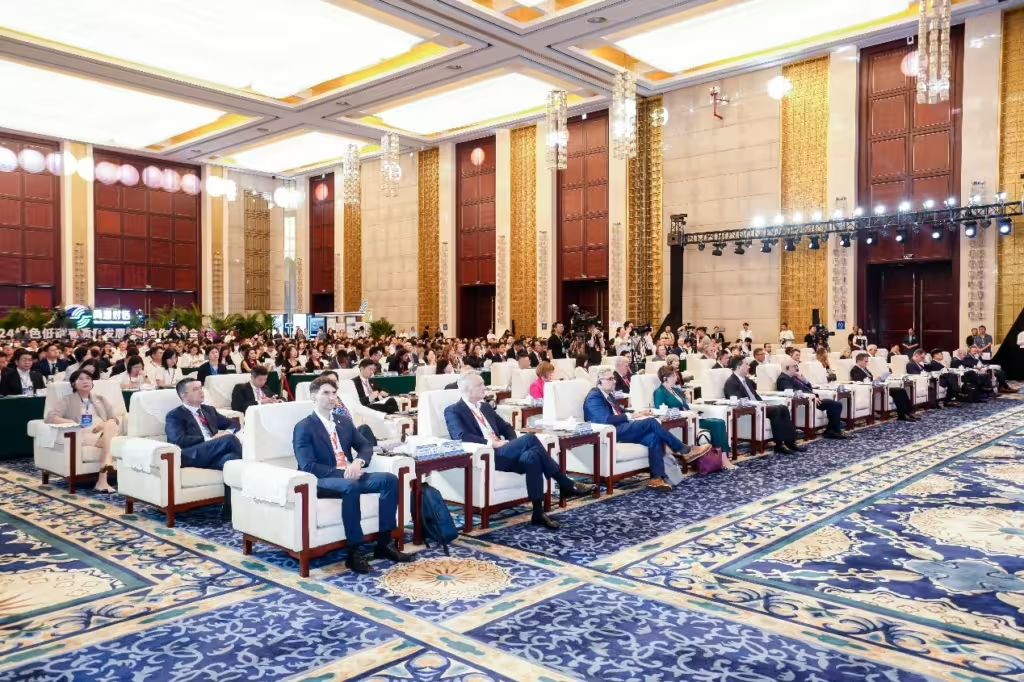
Tetsuro Homma introduced that Panasonic actively participates in ultra-low energy consumption housing, intelligent manufacturing, and energy management businesses in China, aiming for carbon neutrality in its nine factories in China by 2050.
Prof. Dr. Hans Georg Engel stated that by 2039, Mercedes-Benz aims to achieve net carbon neutrality across its new car product lineup throughout the entire value chain and vehicle lifecycle.
Tom Reichert noted, “China is advancing its energy transition, with 50% of the world’s renewable energy generated in China. I visited many innovative projects and was amazed at the speed of your innovation.”
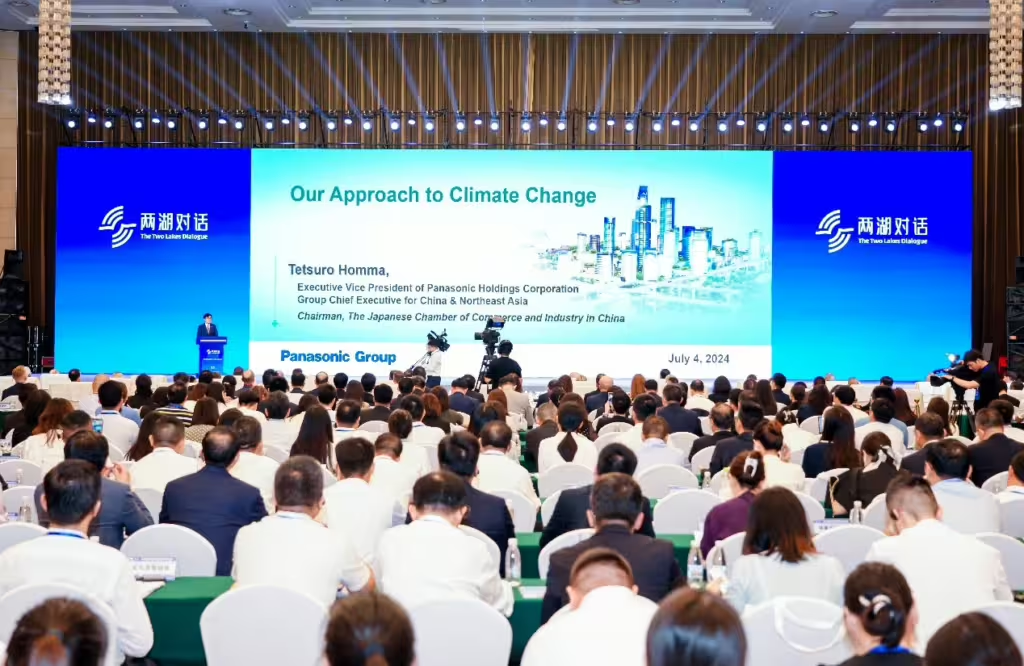
On July 4, an international cooperation matchmaking meeting on the new energy vehicle industry was held, where participants praised the development of Wuhan’s new energy vehicle industry and hoped to further cooperation, seizing green transformation opportunities. Dominic Waughray, Executive Vice President of WBCSD, stated that the development of the new energy vehicle industry is crucial for green transformation, both for China and globally.
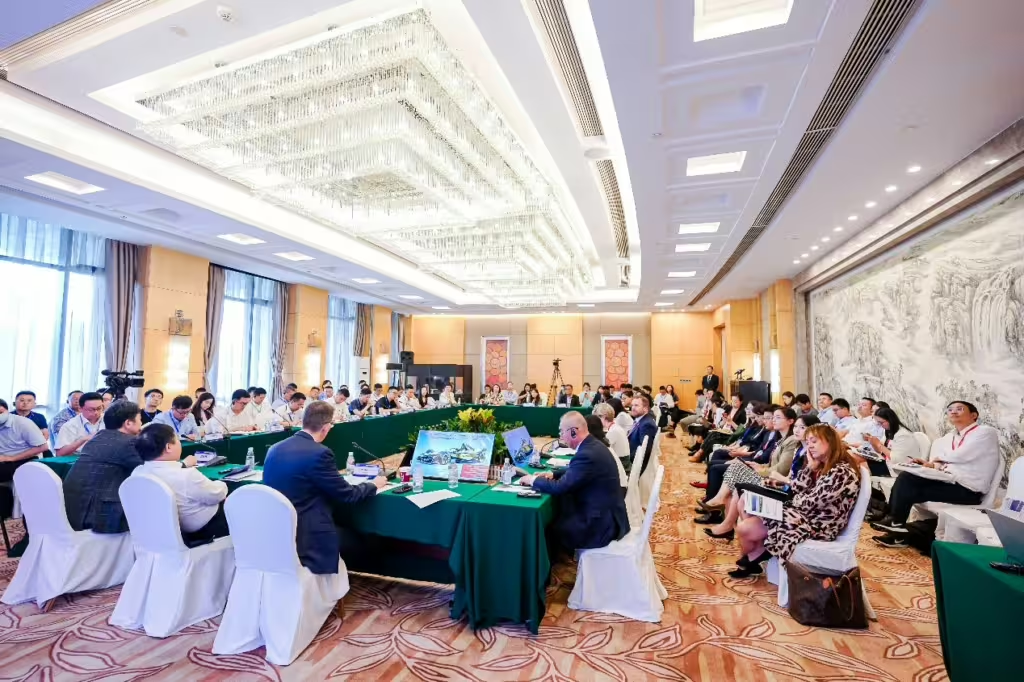
The clean energy industry international cooperation matchmaking meeting emphasized Hubei Province’s significant achievements in renewable energy and green hydrogen, providing valuable opportunities for innovative partnerships in sustainable aviation fuel production. The meeting highlighted the importance of supply-side innovation to enhance the cost-effectiveness of green hydrogen and emphasized expanding market demand to foster a prosperous market. Hubei’s emphasis on research and innovation provides a unique platform for international collaboration and knowledge exchange, linking China’s progress in green technology with the development of emerging markets worldwide.
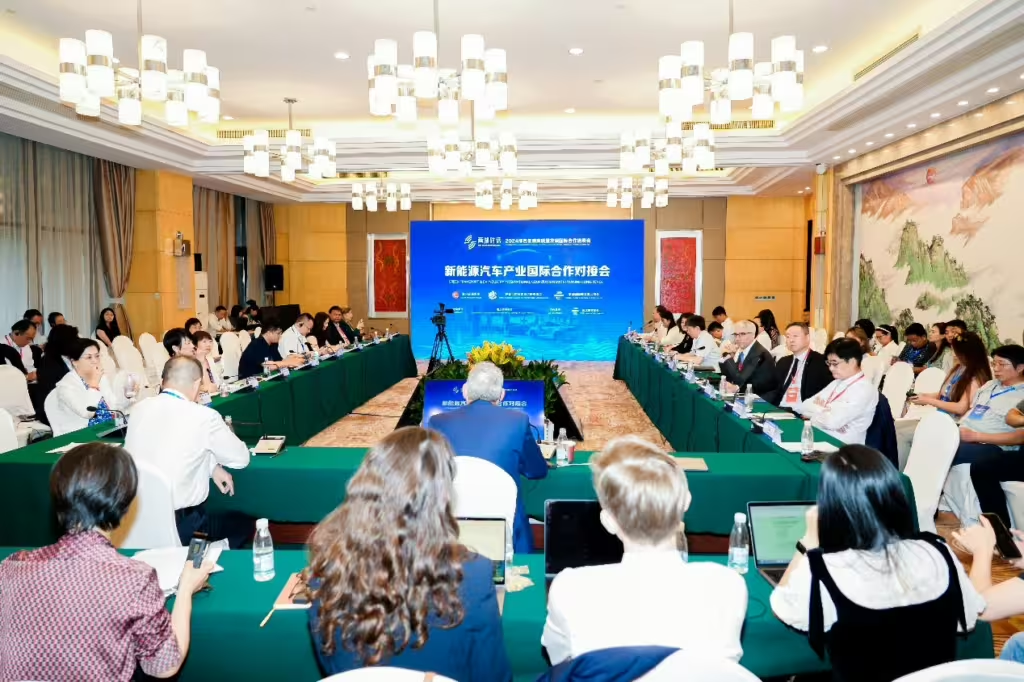
The sustainable agriculture international cooperation matchmaking meeting was attended by over 130 representatives from global leading enterprises and international organizations, discussing international cooperation to promote sustainable agriculture. Several international leading enterprise executives delivered keynote speeches on various aspects of sustainable agriculture, including financial support, retail innovation, seed technology, and biogas, sharing their practices and insights on promoting sustainable agricultural development.
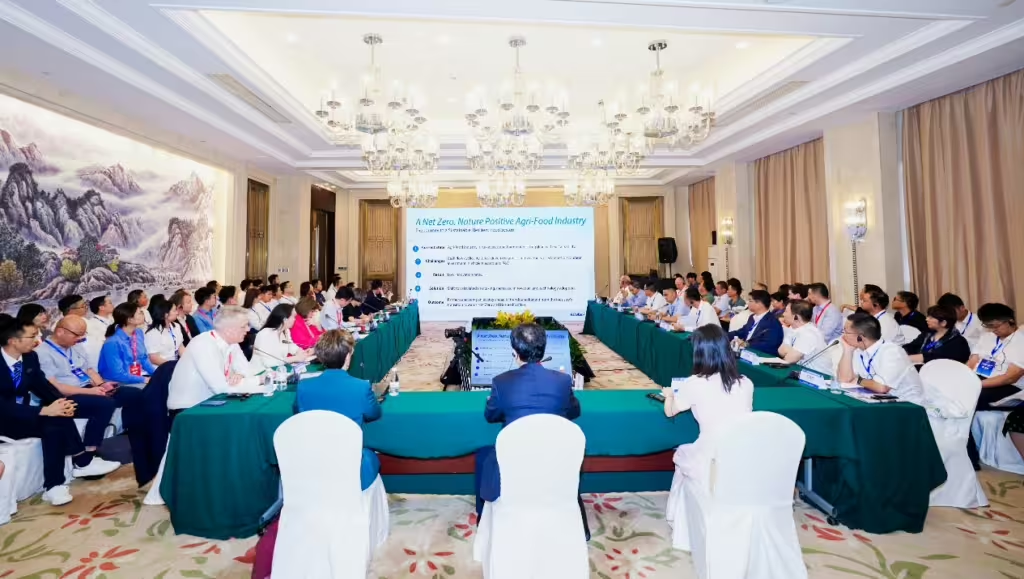
On July 5, the international cooperation dialogue on “dual carbon” development was held.
During the international cooperation dialogue on the carbon market and carbon finance, participants discussed the further development of the carbon emissions trading market. The “carbon trading hub” CRC, based in Wuhan, showcased data: currently serving 2,533 enterprises nationwide, reducing overall emission reduction costs in the national power industry by approximately 35 billion rmb, with a cumulative clearing scale exceeding 53 billion rmb, ranking first globally. The impressive green data highlighted the potential of Hubei’s low-carbon development for many domestic and foreign enterprises.
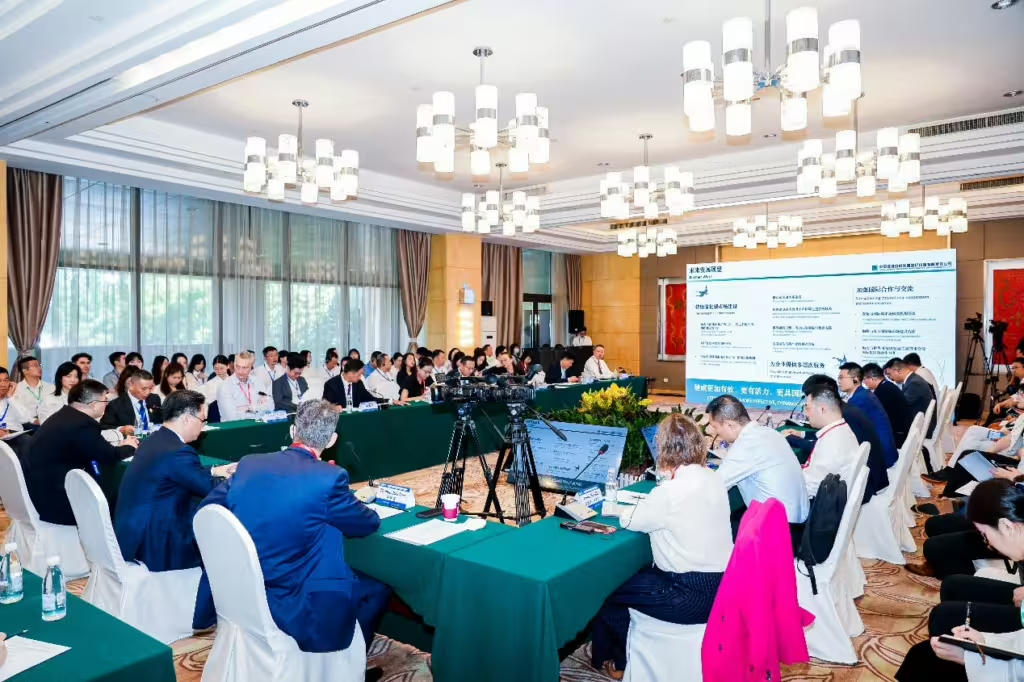
At the international cooperation dialogue on carbon reduction and industrial decarbonization, experts and entrepreneurs provided advice for carbon reduction in the industrial sector, focusing on scientific accounting, energy substitution, and energy-saving technologies. “Promoting carbon reduction and industrial decarbonization is essential for achieving sustainable development,” said Yan Zhongning, Executive Dean of Wuhan Dual Carbon Industry Research Institute. Hubei is accelerating the construction of a green industrial system, establishing the CRC, leading the green and low-carbon transformation of the industrial sector. The advancement of green transformation projects and the creation of a circular economy industrial chain are enhancing both the “green” and “gold” content of Hubei’s economic development.
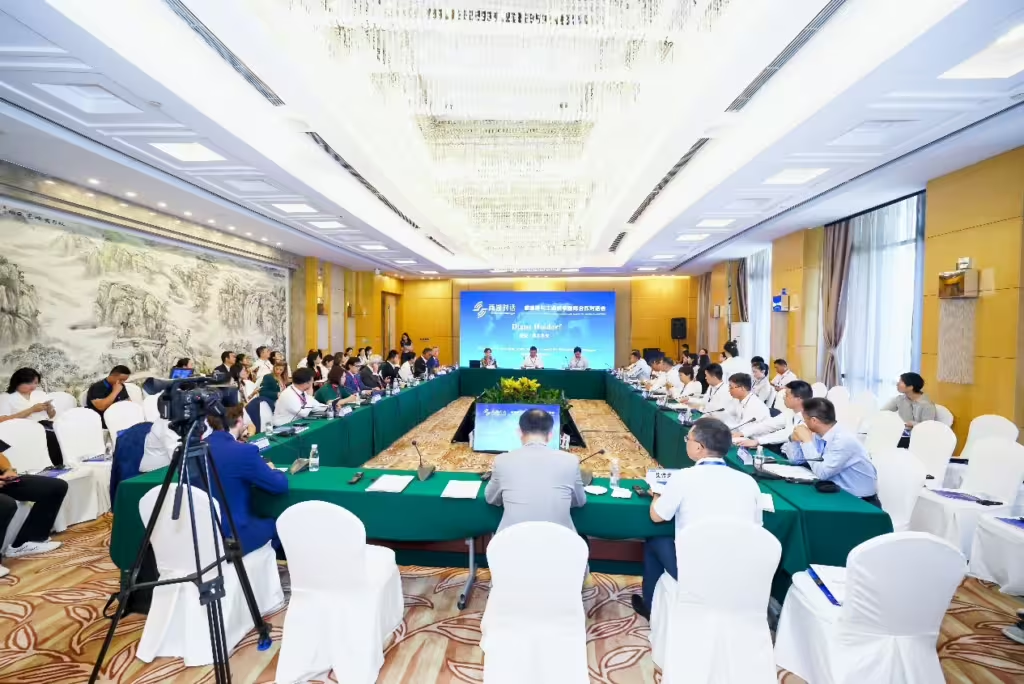
At the international cooperation dialogue on carbon accounting and carbon footprint, participants from China and abroad exchanged discussions on topics such as carbon accounting methods and standards, corporate greenhouse gas accounting systems, carbon footprint accounting tools, international cooperation mechanisms for carbon emissions, digital carbon accounting technology and applications, corporate carbon management practices, and technological innovation and development.
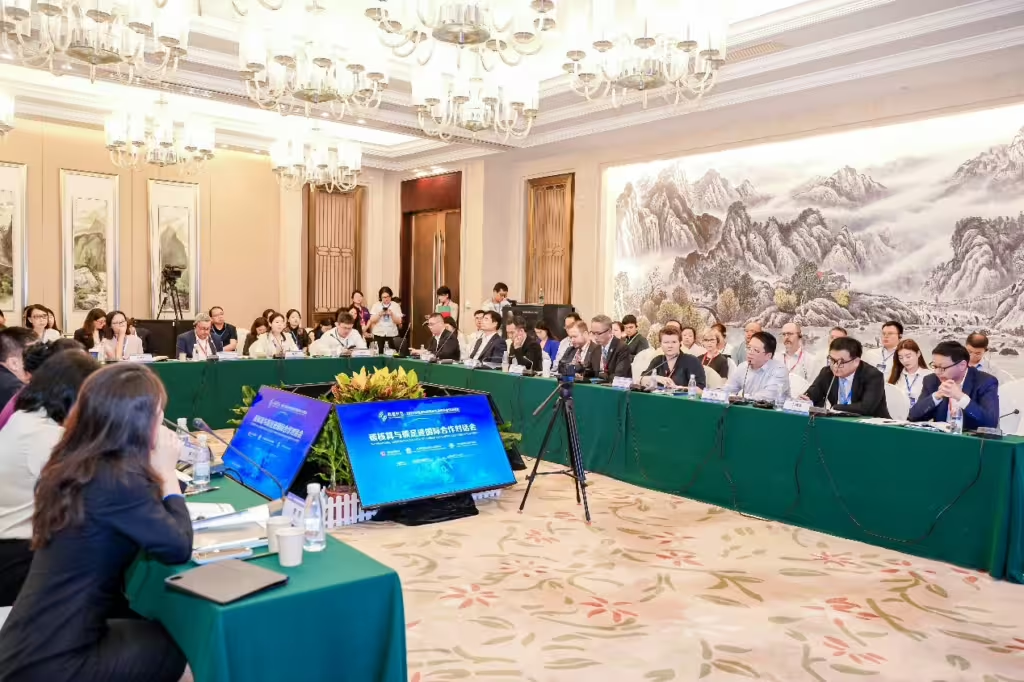
At the closing ceremony, six industry experts shared international cooperation and exchange results on new energy vehicles, clean energy, sustainable agriculture, carbon reduction, carbon markets, and carbon accounting with other guests. In his concluding speech, Peter Bakker said, “In Wuhan, we gathered to discuss these important topics. Through cooperation between China and the world, we promote efforts in agricultural, energy, transportation, and industrial transformation, and take collective action to address global issues. At the same time, we must consider how to connect all these dialogues with financial markets. This year we are meeting in Wuhan, and next year we hope to see everyone in Geneva.” The speakers unanimously expressed their commitment to working together to achieve the goals of “carbon peaking and carbon neutrality,” creating a cleaner, greener, and more beautiful earth.
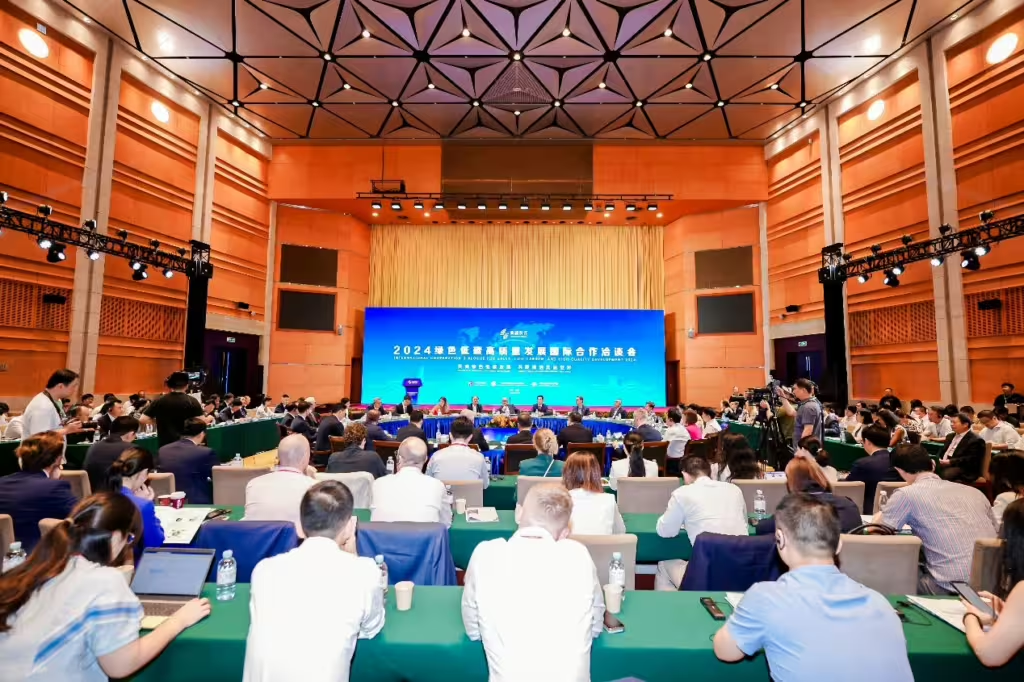
The “Two Lakes Dialogue” event established a new bridge for global business exchanges and cooperation and green transformation, exploring new paths and models for green low-carbon development. WBCSD will continue to establish close partnerships with the Chinese government and enterprises, promoting balanced development in environmental protection, social responsibility, and economic benefits through practical actions. Meanwhile, WBCSD will leverage its international influence to help Chinese enterprises voice their achievements and efforts in sustainable development on the global stage, contributing to sustainable development in China and worldwide, advancing towards a greener future.
Related
Content

Business in the Community Ireland and PwC launch Low Carbon Pledge Report
19 October, 2023
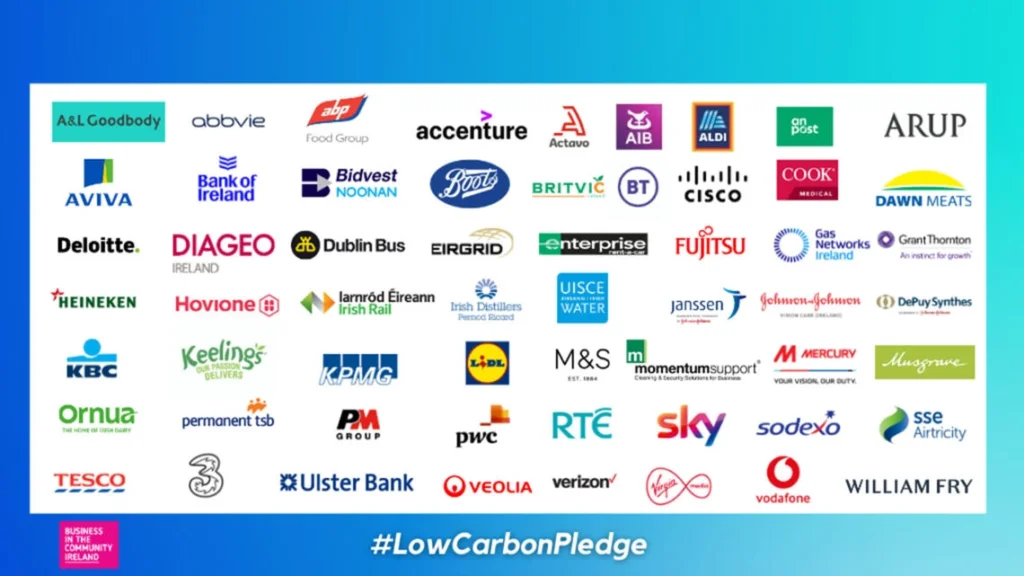
Business in the Community Ireland: New Low Carbon Pledge report charts the decarbonization journey of over 60 companies
10 June, 2021

BNP Paribas unveils its first ‘Climate Analytics and Alignment Report’ and carbon intensity reduction targets by 2025
5 May, 2022

